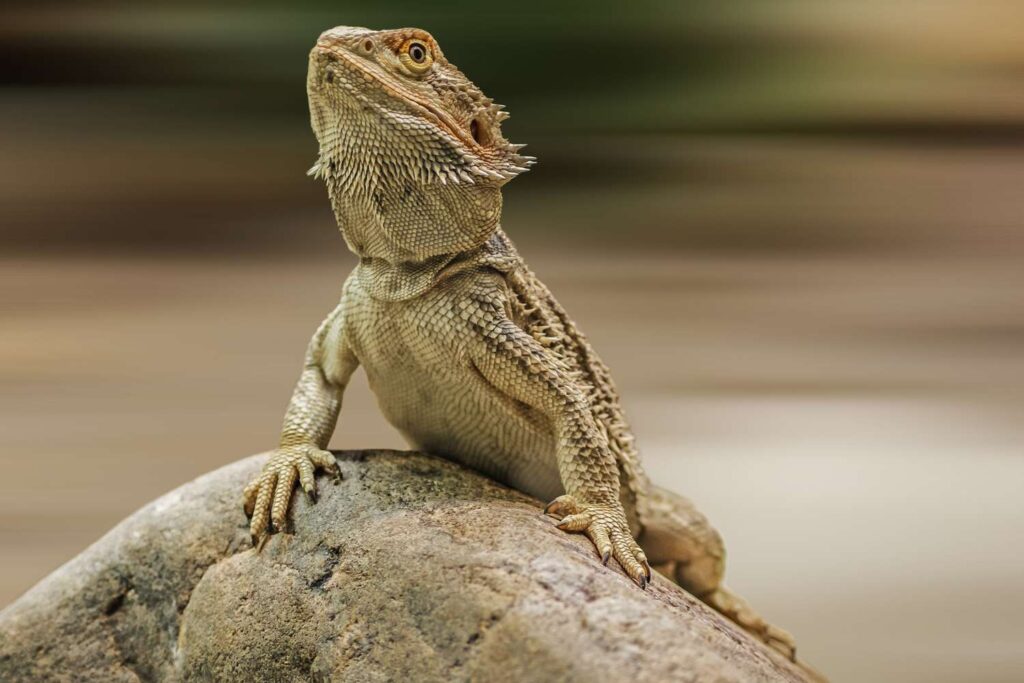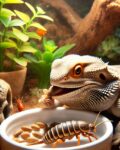Bearded dragons have varied diets that include a mix of vegetables, fruits, and insects. As a bearded dragon owner, you might wonder if rolly pollies (also known as pill bugs, woodlice, or armadillidiidae) are safe for your pet. This article explores whether bearded dragons can eat rolly pollies and provides guidance on how to safely incorporate them into their diet.
Can Bearded Dragons Eat Rolly Pollies?

Nutritional Value of Rolly Pollies
Rolly pollies can provide some nutritional benefits to bearded dragons, including:
- Protein: They are a good source of protein, which is essential for growth and muscle development.
- Calcium: Rolly pollies contain calcium, which is vital for bone health and preventing metabolic bone disease.
Risks of Feeding Rolly Pollies to Bearded Dragons
While rolly pollies can be beneficial, there are some risks to consider:
- Pesticides: If the rolly pollies are collected from areas treated with pesticides, they can be harmful to your bearded dragon. Always ensure they are sourced from pesticide-free environments.
- Parasites: Wild-caught insects can carry parasites that may infect your bearded dragon. It’s safer to buy insects from reputable pet stores.
- Chitin Content: Rolly pollies have a hard exoskeleton made of chitin, which can be difficult for bearded dragons to digest if consumed in large quantities.
How to Safely Feed Rolly Pollies to Your Bearded Dragon
If you decide to feed rolly pollies to your bearded dragon, follow these guidelines to ensure their safety:
- Source from Safe Environments: Only collect rolly pollies from pesticide-free areas or purchase them from trusted pet stores.
- Clean Thoroughly: Rinse the rolly pollies with water to remove any dirt or potential contaminants.
- Feed in Moderation: Offer rolly pollies as an occasional treat, not a regular part of their diet. Too many can cause digestive issues due to their high chitin content.
- Monitor for Reactions: After feeding rolly pollies, watch your bearded dragon for any signs of digestive upset or unusual behavior.
Alternative Insects for Bearded Dragons
If you’re unsure about feeding rolly pollies, there are plenty of other safe and nutritious insect options for bearded dragons:
- Crickets: A staple in many bearded dragon diets, crickets are a good source of protein and easy to find.
- Dubia Roaches: Highly nutritious and easy to digest, dubia roaches are an excellent choice.
- Mealworms: Another common feeder insect, though they should be fed in moderation due to their higher fat content.
- Hornworms: Low in fat and high in moisture, hornworms make a great treat.
Monitoring Your Bearded Dragon’s Health
Always observe your bearded dragon after introducing new foods, including rolly pollies. Look for signs of digestive issues or changes in behavior, such as lethargy or loss of appetite. If any adverse reactions occur, stop feeding the new food and consult a veterinarian.
Bottom Line
Bearded dragons can eat rolly pollies in moderation, provided they are sourced from safe, pesticide-free environments. While rolly pollies offer protein and calcium, they should only be an occasional treat due to the risk of pesticide exposure and the difficulty of digesting chitin. Always ensure a varied diet that includes a mix of vegetables, fruits, and safe insects to maintain your bearded dragon’s health.<div class=”st-alert st-alert-key with_title”><span>KEY TAKEAWAYS</span> <li>Bearded dragons can eat rolly pollies in moderation.</li> <li>Ensure rolly pollies are sourced from pesticide-free environments.</li> <li>Rolly pollies provide protein and calcium but have a high chitin content.</li> <li>Feed rolly pollies as an occasional treat, not a staple diet.</li> <li>Monitor your bearded dragon for any adverse reactions when introducing new foods.</li> <li>Consider alternative insects like crickets, dubia roaches, mealworms, and hornworms.</li> </div>
FAQ
Are wild-caught rolly pollies safe for bearded dragons?
Wild-caught rolly pollies can carry pesticides and parasites. It’s safer to source them from pesticide-free environments or buy from reputable pet stores.
How often can I feed rolly pollies to my bearded dragon?
Rolly pollies should be fed as an occasional treat, no more than once a week, to avoid potential digestive issues.
What should I do if my bearded dragon has digestive issues after eating rolly pollies?
If your bearded dragon experiences digestive issues, stop feeding them rolly pollies and consult a veterinarian for advice.
Can baby bearded dragons eat rolly pollies?
While baby bearded dragons can eat rolly pollies, they should be offered in very small amounts and sourced from safe environments to avoid health risks. Their diet should primarily consist of appropriate-sized insects and finely chopped vegetables.
Are there any other insects I should avoid feeding my bearded dragon?
Avoid feeding bearded dragons insects that are high in fat, difficult to digest, or potentially toxic, such as fireflies, centipedes, and large beetles. Always research and ensure the safety of any new insect before offering it to your pet.

